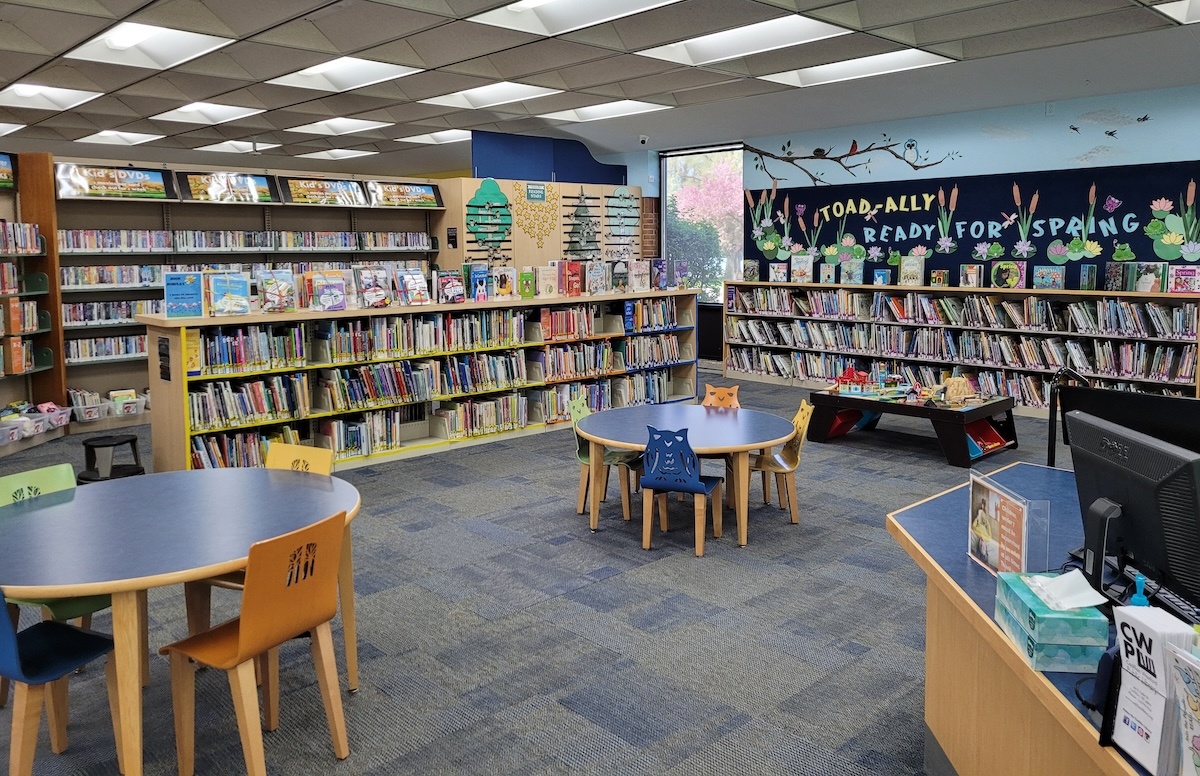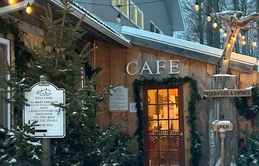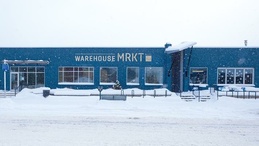
Sharing Is Caring at the Library
Why a heavily used NoMi library service might disappear next fall
By Kierstin Gunsberg | Aug. 23, 2025
With more than 400,000 books, movies, games, and curious finds (ukuleles! weaving looms!) available across the Traverse Area District Library (TADL) system, the six-branch network has almost everything.
But for what it doesn’t have, there’s the Michigan Electronic Library Catalog, or MeLCat, a saving grace for anyone who’s ever stood in front of their friendly neighborhood librarian with an obscure title request.
Launched in 2005, the service allows its 436 participating libraries across the state to exchange materials with one another through interlibrary loans.
That means if a specific book is only available at a library downstate, a northern Michigan cardholder can still borrow it, pick it up at their local branch, and return it there. Once finished, it’s sent back to its home library.
TADL cardholders request an average of 50 titles through MeLCat every day, and they’re on track to break their annual borrowing record, a number that’s climbed from 13,816 in 2020 to over 28,000 in 2024.
It’s one way Michigan libraries expand access while saving money, treating libraries across the state as an extension of their own collections rather than purchasing materials that might otherwise collect dust on another shelf.
And as it celebrates its 20th year, MeLCat may be in big trouble.
MeLCat and the IMLS Funding Cuts
From staff and programming to building operations, Michigan libraries are funded primarily by the people who use them through their local taxes. Then, to round everything out, a small amount of supplemental dollars comes in through the state, too.
MeLCat is different though. About three-quarters of its cost is covered by federal funds, provided by the Institute of Museum and Library Services (IMLS), which awards $4.8 million to The Library of Michigan annually. The Library of Michigan uses some of that money to administer MeLCat, which participating libraries can then use their own (locally provided) funds to purchase.
But since the Trump administration moved in March 2025 to dismantle the IMLS—now partially restored while court battles play out—it leaves the programs that it funds, like MeLCat, hanging in the balance. For now, Michigan libraries are being told that IMLS funding, which accounts for between 0.003-0.005 percent of the total federal budget, is safe through September 2026.
Whether or not it continues after that is up in the air.
If the money does disappear, the Library of Michigan would lose a major chunk of its budget, making programs like MeLCat much harder to keep running.
The Impact in Cadillac
For patrons of rural libraries, the loss of MeLCat would be a hard hit. “We’re very heavy users, especially for a library of our size,” says Cadillac Wexford Library director Tracy Logan. “It is so vital to us.”
Last year, patrons of the Cadillac Wexford Library, which houses an 80,000-item collection, borrowed 18,000 additional items from other libraries using MeLCat, effectively boosting their materials access by 22 percent. Some of MeLCat’s top users at the library are homeschoolers digging into unit studies, budget-conscious college students borrowing textbooks for their classes, and even pastors researching their next sermon.
“It’s such a great service for learners of all ages working on all kinds of projects,” says Logan. “I’m always excited when I see somebody who’s maybe putting in an herb garden for the first time, so they check out a bunch of books from the MeLCat to help them complete that project.” And, she notes, “It is an incredible return on investment for the money that is spent on it.”
According to the Michigan Department of Education, that ROI is $25 for every dollar spent.
And while just about every topic of information is a Google search away, Logan worries that if her patrons lose access to bigger book collections, they’ll also be losing the in-depth research and fact-checking that isn’t so easily found for free elsewhere.
“It’s certainly easy to access preliminary information online through things like Wikipedia and other websites, but down-deep information is not so easily accessible and often is behind paywalls,” she notes, adding that allocating money to make up for the thousands of items that would no longer be available to her patrons through MeLCat is a nonstarter.
“Our library budget for books is not going to get bigger because the MeLCat doesn’t exist. It will stay the same. But people’s needs will grow in ways that we won’t be able to respond to because we don’t have more money.”
The Impact in Elk Rapids
“Uncertainty is really what we know,” says Pamela Williams, another rural library director for the Elk Rapids District Library, who along with other Up North librarians has been meeting with the Library of Michigan monthly for updates on the IMLS because MeLCat is “super important” to her and her 4,876 patrons. “Some library consortiums are meeting and trying to do some brainstorming on ways that we can fund it,” says Williams.
One option is for every library to pitch in to fund the service themselves. But as Logan pointed out earlier, not every library budget has the wiggle room. And, if libraries do end up putting up the money to sustain MeLCat, “It would be taking money away from our own collection,” explains Williams. “But it would also open the door to sharing with others.”
If the service goes down, physical materials aren’t the only resources that will be lost, she adds. “There’s also some digital content that we really like that will probably go away.”
“As librarians, we’re really resilient and we’re going to move forward,” Williams says. “We’re going to try our best to keep MeLCat some way or another. It might be a scaled-down version.”
No matter the size of the district or the collection, she says, it’s vital for people to have as much access to as many resources as possible. “We want to be able to provide information to everyone.”
And as a spot of good news, while libraries are facing the potential for disruption at the federal level, folks in northern Michigan are proving that we really do love our libraries. In an early August vote, a $3.5 million millage was approved by voters to help construct a new building for the Elk Rapids District Library, which has been located in the charming but aging Island House, a Michigan State Historic Site, since 1949. The new building, unlike the Island House, will be designed to serve both its users and its collection, another step toward keeping information accessible, whatever challenges come.
What Is the IMLS?
An independent federal agency founded in 1996 to support the educational, informational, and cultural reach of museums and libraries, the Institute of Museum and Library Services “envisions a nation where individuals and communities have access to museums and libraries to learn from and be inspired by the trusted information, ideas, and stories they contain about our diverse natural and cultural heritage.”
IMLS’s budget appropriation table shows that they requested $280 million from Congress for fiscal year 2025. Some of their funding is also supported by private donors and organizations.
Along with helping fund MeLCat, IMLS awards grants and provides research resources to institutions across the country, including northern Michigan’s own Dennos Museum Center, Leelanau Historical Museum, and the Grand Traverse Band of Ottawa and Chippewa Indians.
For more information, visit imls.gov
Trending

Welcoming the Winter Solstice: Rituals & Events for the Shortest Day of the Year
With the winter solstice quickly approaching, it’s hard not to notice how dark each day feels. Astronomically, this is… Read More >>
Camp Greilick Now Open!
It’s been a long road for the century-old Camp Greilick, which, after several dormant years, was acquired by Grand Tra… Read More >>
Men and Ugly Sweaters
Those two things don’t always go together, but on Dec. 19, you’ll see both out and about in Petoskey and Harbor … Read More >>


